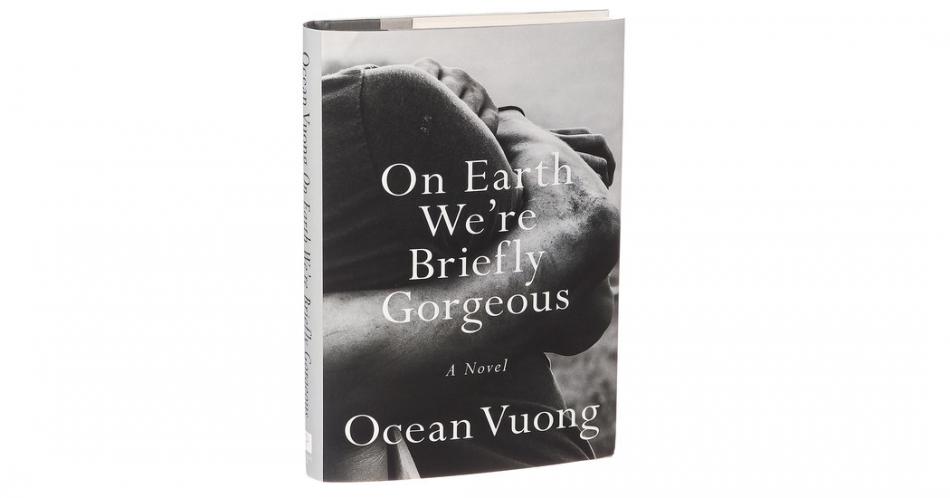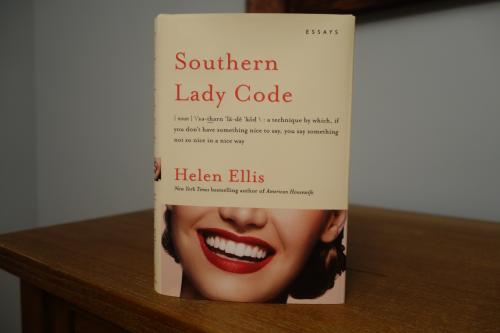Back in the December / January timeframe, there was a lot of buzz for a new novel called On Earth We're Briefly Gorgeous. It is written by Ocean Vuong, who had already made quite a name for himself with his poetry collection, Night Sky with Exit Wounds.

Knowing I had two big trips coming up (Israel in late January and Curacao in late February), I decided to pick it up and add it to my airplane reading list.
The book is written as a letter from Ocean to his mother. A way to express so many things he has felt, but hasn't been able to say. It honestly feels more like a diary than a letter.

For example, on page 62, "There is so much I want to tell you, Ma. I was once foolish enough to believe knowledge would clarify, but some things are so gauzed behind layers of syntax and semantics, behind days and hours, names forgotten, salvaged and shed, that simply knowing the wound exists does nothing to reveal it. I don't know what I'm saying. I guess what I mean is that sometimes I don't know what or who we are. Days I feel like a human being, while other days I feel more like a sound. I touch the world not as myself but as an echo of who I was. Can you hear met yet? Can you read me? When I first started writing, I hated myself for being so uncertain, about images, clauses, ideas, even the pen or journal I used. Everything I wrote began with maybe and perhaps and ended with I think or I believe. But my doubt is everywhere, Ma. Even when I know something to be true as bone I fear the knowledge will dissolve, will not, despite my writing it, stay real. I'm breaking us apart again so that I might carry us somewhere else - where, exactly, I'm not sure. Just as I don't know what to call you - White, Asian, orphan, American, mother?"
As he mentions at the end of that passage, a lot of the book explores the immigrant experience. Ocean lives with his mother and grandmother, both women who grew up in Vietnam. On page 79, he talks about understanding his family's experience in America through their work at a nail salon, "Because I am your son, what I know fo work I know equally of loss. And what I know of both I know of your hands. Their once supple contours I've never felt, the palms already callused and blistered long before I was born, then ruined further from three decades in factories and nail salons. Your hands are hideous - and I hate everything that made them that way. I hate how they are the wreck and reckoning of a dream. How you'd come home, night after night, plop down on the couch, and fall asleep inside a minute. I'd come back with your glass of water and you'd already be snoring, your hands in your lap like two partially scaled fish."
He continues, sharing his experience in that same salon, "What I know is that the nail salon is more than a place of work and workshop for beauty, it is also a place where our children are raised - a number of whom, like cousin Victor, will get asthma from years of breathing the noxious fumes into their still-developing lungs. The salon is also a kitchen where, in the back rooms, our women squat on the floor over huge woks that pop and sizzle over electric burners, cauldrons of pho simmer and steam up the cramped spaces with aromas of cloves, cinnamon, ginger, mint, and cardamom mixing with formaldehyde, toluene, acetone, Pine-Sol, and bleach. A place where folklore, rumors, tall tales, and jokes from the old country are told, expanded, laughter erupting in back rooms the size of rich people's closets, then quickly lulled into an eerie, untouched quiet. It's a makeshift classroom where we arrive, fresh off the boat, the plane, the depths, hoping the salon would be a temporary stop - until we get on our feet, or rather, until our jaws soften around English syllables - bend over workbooks at manicure desks, finishing homework for nighttime ESL classes that cost a quarter of our wages."
I wanted to include that entire section (it goes on for another page and a half beyond what I included here), it is all so poignant.
The book also describes Ocean's first love, a boy named Trevor, who he meets while working on a tobacco farm. He describes those first feelings of longing, the first touch, the first sexual experience, with deep intensity.
As I read, I was reminded that I love reading because it makes me a better writer. It exposes me to different styles, formats and storytelling mechanisms. In this book, the magic is in the deliberate word choices. The selection of a specific adjective or verb that dials you in so precisely to what he was feeling in that exact moment.
Though the content of this book isn't uplifting, the writing is beautiful and powerful.
*Images courtesy of The Telegraph and The New York Times.



